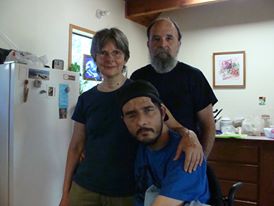Tag: Injury
-
High Court orders state: Reopen probe of U.S. citizen wounded in West Bank protest
10th July 2013 | Haaretz | Jerusalem Court responding to petition charging that nobody questioned the Border Police soldier who fired the tear-gas canister that cracked Tristan Anderson’s skull in 2009. Israel’s High Court of Justice on Wednesday ordered investigators to reopen their probe into the incident of a Border Police officer who shot a…
-
Parents of Tristan Anderson, US activist critically wounded following West Bank protest, appeal to High Court of Israel
9th July 2013 | Justice for Tristan | Jerusalem Parents of US Activist Critically Wounded Following West Bank Protest Appeal to High Court of Israel: The Police Investigation was Shockingly Negligent – Demand a Serious, Professional Investigation into the Shooting of their Son. Tristan Anderson (41, of Oakland, CA) was severely wounded after having been…
-
Army violently represses Kafr Qaddum demonstration
21th June 2013 | International Women’s Peace Service | Kafr Qaddum , Occupied Palestine On Friday, June 21, the residents of Kafr Qaddum gathered for the weekly demonstration following the Friday prayer. Many residents were prevented from attending the prayer, as 60 soldiers entered the village before the demonstration even began. At approximately 11:30, people…

